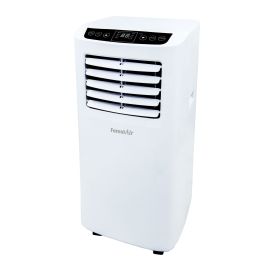Our summers may be short, but when the heatwaves hit, it often comes as a surprise. Investing in an air conditioner ensures a cool night’s sleep so that you can enjoy summer to the fullest. Here are some recommendations to help you choose. Click to learn more and read our buyer’s guide.
The individual unit
Individual units are best for cooling down living spaces between 300 and 1,600 sq. ft. and are much less expensive than a central unit.
There are three types:
The window air conditioner
For a small area, this is a practical and affordable solution.
Horizontal models fit vertical sliding windows while vertical models fit horizontal casement or sliding windows.
Reinstall window air conditioners every spring and store them away during the cold season.
These units are often noisier than others. However, those with higher price points are quieter and are equipped with a remote control.
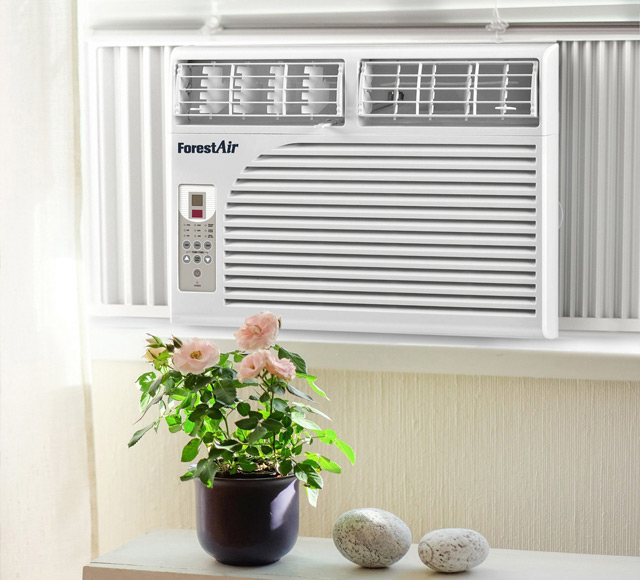

The wall-mounted air conditioner
The wall-mounted air conditioner is more expensive but even quieter.
It is permanently installed in a box embedded in an exterior wall.
While this unit mainly cools the area it is placed in, there are multi-zone models to help cool a single-storey house.
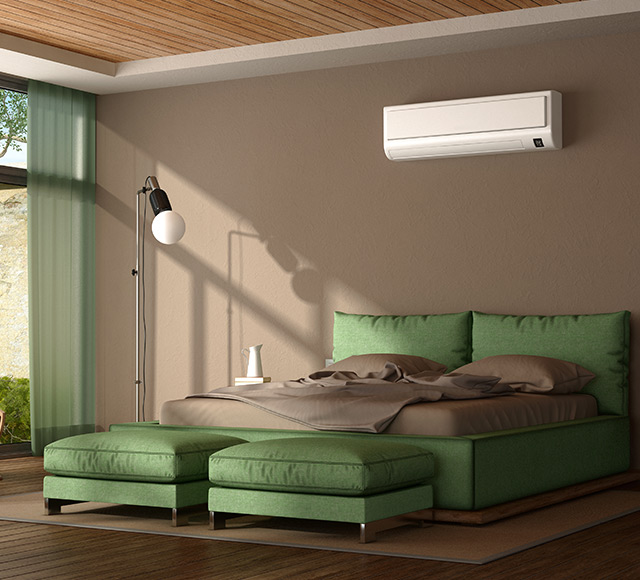

The portable air conditioner
The portable air conditioner on wheels is easily moveable.
It requires an outer drain sleeve for hot air (a window must be left ajar at all times) and regular emptying of the water drain tray.
This means that the air conditioner is functional and quiet.
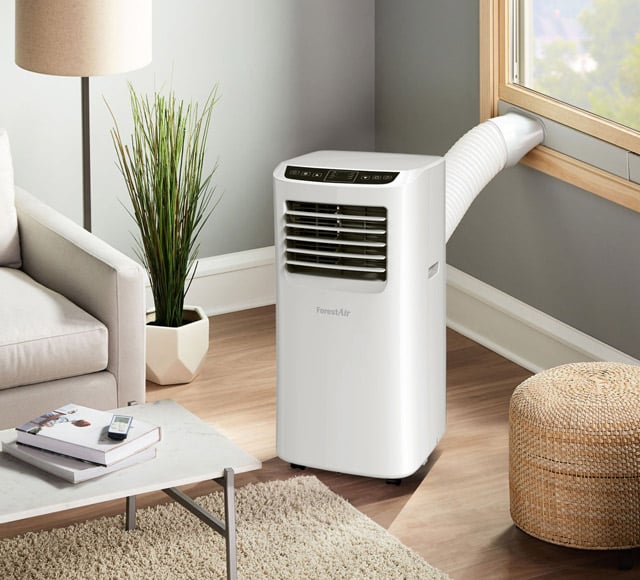

The central air conditioner
This unit is ideal if you want to cool large spaces. Some models are only intended for homes without a ventilation network (forced-air heating).
The split air conditioner has an exterior-mounted compressor and condenser, and one or more fresh-air diffusers strategically placed in locations to be cooled. Depending on the unit, air conditioning output will range from 9,000 to over 35,000 BTU/hr.
The ceiling unit is installed in the attic and distributes fresh air to different rooms through flexible ducts placed in the ceiling. Considering its placement, the unit is more difficult to maintain. There is also a risk of condensation in the ducts. The cooling capacity of this central unit goes up to 60,000 BTU/h (5 tonnes).
The central heat pump cools during the summer and heats during the winter. This external system is also more costly and varies in noise level depending on the unit.
The central air conditioner has an external compressor and is known for its power and efficiency. It also has an evaporator attached to the central heating system where fresh air distributes through the ventilation ducts.
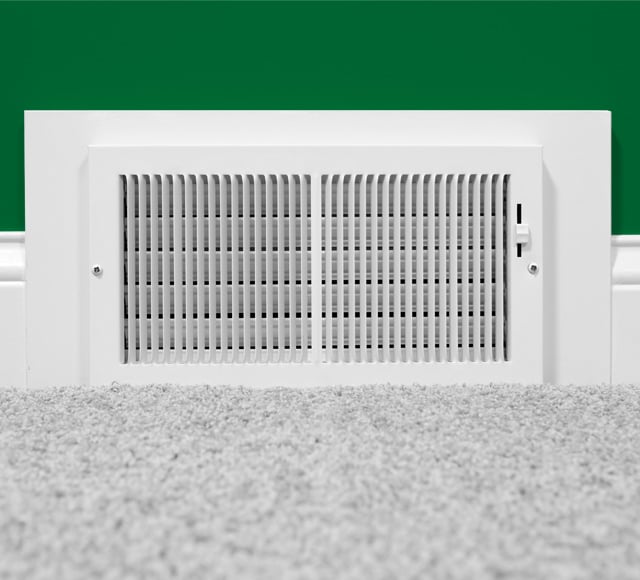

Note : If you choose one of these air conditioners, contact a refrigerationist, as the unit requires complete duct insulation and materials resistant to large temperature fluctuations.
Important criteria
Regardless of which air conditioner you choose, there are three important considerations:
Power. It is better to have a small, continuously running unit than a more powerful one that always shuts down and restarts, since the humidity in your home rises every time it stops. High humidity levels cause discomfort. Your air conditioner must be able to maintain relative humidity at 30–50%.
Energy efficiency. Energy-efficient performance is definitely an important criterion. Each unit comes with an EnerGuide label that tells you of its performance. The SEER (seasonal energy efficiency ratio) measures this performance rate. The higher the rating, the lower the energy consumption. ENERGY STAR-approved air conditioners must present a SEER of at least 14, but they are now available on the market with a SEER of 21.
Noise. Many cities and apartment buildings have regulations regarding the level of acceptable noise. In Quebec, most municipalities accept air conditioning systems that emit about 60 decibels (dB), but some allow up to 80 dB. Although some of today's models emit less than 30 dB, it is not possible to cool your environment noise-free. Check the decibel count on the data sheet of the air conditioner that you intended to purchase.
Choosing the right power and location
Cooling capacity is listed in BTU (British Thermal Unit) per hour. It is important to select the proper BTU capacity for the size of the room to be cooled because it refers to the speed and efficiency with which it can cool a given area. If the air conditioner has too little a BTU capacity, it will be unable to effectively cool a large area. An estimated 20 BTUs cool approximately one square foot.
When choosing the proper BTU capacity, consider factors such as ceiling height, sun exposure, and room insulation.
For a sunny area, consider an air conditioner with 10% more BTUs than generally recommended for the space’s dimensions.
If you install your air conditioner in the kitchen, add 4,000 BTUs to the recommended use. Add an extra 600 BTUs per user in family rooms.
In terms of location, avoid placing your individual air conditioner near a heat source such as a bay window. Do not place it too close to a sofa or bed as the cold air may provoke a cold or headache.
For a wall-mounted air conditioner, the ideal location is approximately two metres high for better air distribution of cool air.
Do not place an outdoor unit in direct sunlight or windy spaces. As it is slightly noisy, it is better to install it away from the adjacent house and room windows. Floor installations are better than wall installations as they don’t cause wall vibrations.


Proper air conditioner maintenance
We recommend that the unit filter be inspected after three weeks of use and cleaned as needed. This is done by washing them with warm water and mild soap, them fully drying them before placing them back in the air conditioner.
Visual inspections should be conducted twice a year: in the spring prior to installation, and in the fall, at the end of the season. Inspect the condenser and evaporator coils for cleanliness. If the coils are dirty, use a fine-bristle brush or a toothbrush to clean them. If there is a bad smell, products like CLR or Spray Nine can be diluted with water to clean the coils.
Now that you are informed, you will be sure to find an air conditioner that meets your needs.
If you need help, feel free to reach out to your BMR dealer.
